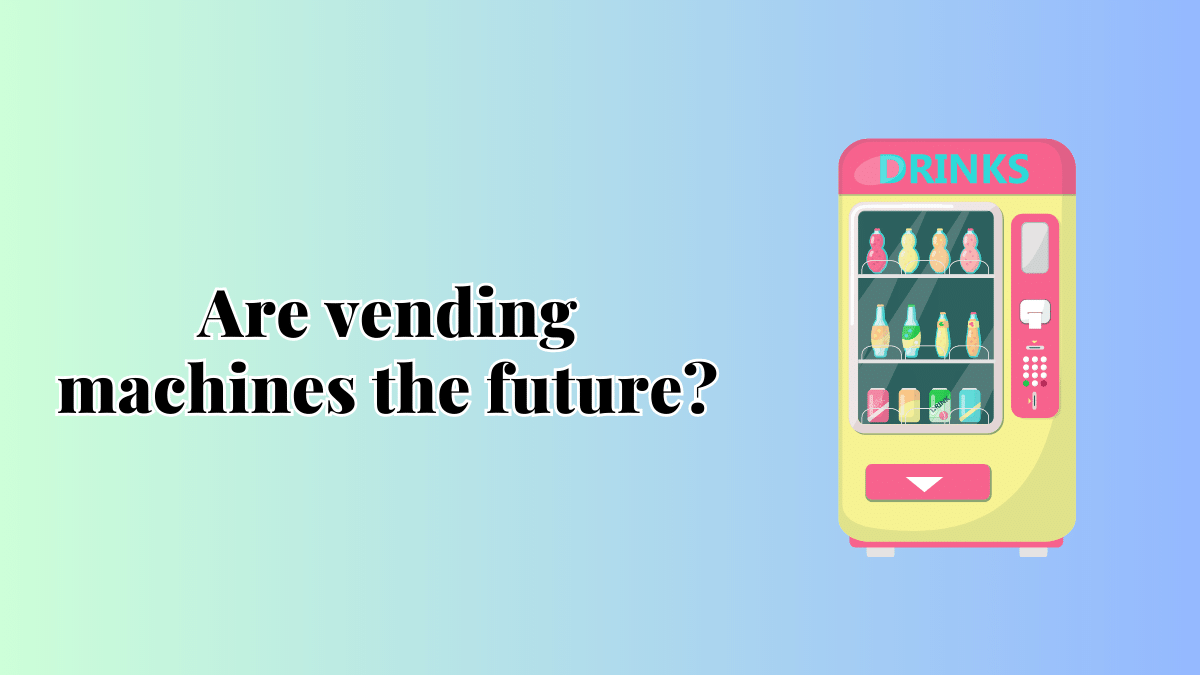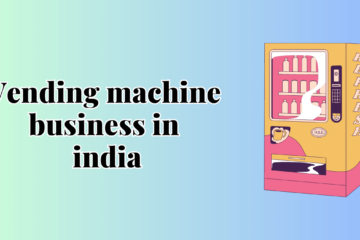Vending machines have experienced a remarkable transformation over the years. Initially introduced in the early 1880s, these machines primarily dispensed postcards and gum. However, with advancements in technology, the scope of vending machines expanded significantly,Future of Vending Machines covering an array of products, including snacks, beverages, electronics, and even prescription medications.
2. The Evolution of Vending Machines
The journey of vending machines began with the installation of the first commercial machine in London, which dispensed postcards. From there, the concept spread rapidly across the globe, and the machines evolved to cater to various products. Today, vending machines are equipped with cutting-edge technology that allows for efficient inventory management, real-time data tracking, and interactive user interfaces.
3. The Advantages of Vending Machines
3.1 Convenience and Accessibility
One of the key advantages of vending machines is the convenience they offer. Placed strategically in high-traffic areas such as airports, office buildings, and shopping malls, these machines provide easy access to products on the go. Customers can satisfy their cravings or purchase necessities without standing in long queues or visiting traditional stores.
3.2 Time and Labor Efficiency
Vending machines save valuable time for both consumers and businesses. With quick transactions and self-service capabilities, customers can make purchases swiftly. For businesses, vending machines reduce the need for additional staff, leading to cost savings and increased operational efficiency.
3.3 24/7 Availability
Unlike brick-and-mortar stores with fixed operating hours, vending machines are available 24/7. This constant accessibility allows customers to make purchases at any time, making them especially valuable in emergencies or during odd hours.
3.4 Cashless Payments
Modern vending machines are equipped with cashless payment options, such as credit/debit card and mobile payment systems. This integration of technology simplifies transactions and ensures a seamless experience for customers who may not always carry cash.
4. Innovative Features in Modern Vending Machines
4.1 Smart Technology Integration
Today’s vending machines are equipped with smart technology, enabling remote monitoring, inventory management, and data analytics. This integration ensures efficient restocking, minimizes downtime, and helps businesses understand consumer preferences better.
4.2 Healthy and Sustainable Options
Acknowledging the rising demand for healthier choices, vending machines now offer a variety of nutritious snacks and beverages. Additionally, some machines incorporate eco-friendly practices by using biodegradable containers and promoting recycling.
4.3 Interactive User Experience
To enhance user engagement, modern vending machines feature touchscreens and interactive displays. Customers can explore product information, compare options, and even personalize orders, providing a more enjoyable shopping experience.
5. Vending Machines and the Retail Industry
5.1 Impact on Traditional Retail
The widespread adoption of vending machines has raised concerns about their impact on traditional retail stores. While vending machines offer unparalleled convenience, they cannot replicate the personalized assistance and sensory experiences of physical stores.
5.2 Expansion of Vending Market
Contrary to replacing traditional retail, vending machines have expanded the market by reaching new locations and demographics. They have found applications in various sectors, including transportation hubs, educational institutions, and healthcare facilities.
6. Vending Machines and Consumer Behavior
6.1 Changing Consumer Preferences
The shift towards a fast-paced lifestyle has influenced consumer preferences, favoring quick and easy shopping experiences. Vending machines capitalize on this trend by providing instant gratification for consumer needs.
6.2 Impulse Purchases and Brand Visibility
Vending machines are strategically placed to encourage impulse purchases. Their eye-catching designs and prominent locations increase brand visibility and can significantly impact purchasing decisions.
7. Addressing Challenges and Concerns
7.1 Maintenance and Restocking
Efficient maintenance and timely restocking are essential to ensure vending machines function smoothly. Regular servicing and monitoring help prevent breakdowns and maintain customer satisfaction.
7.2 Ensuring Product Quality and Freshness
Quality control is crucial in the vending industry. To build trust with customers, it is vital to deliver products that meet expectations regarding freshness, taste, and overall quality.
7.3 Security and Safety Measures
Vending machines may be vulnerable to vandalism or theft, which can lead to financial losses. Implementing security measures, such as surveillance cameras and tamper-resistant designs, helps safeguard the machines and the products inside.
8. Vending Machines in Different Sectors
8.1 Food and Beverages
Vending machines offering snacks, beverages, and ready-to-eat meals have become a common sight in various public spaces. They cater to the immediate cravings of consumers while providing a wide range of options.
8.2 Healthcare and Pharmaceuticals
Vending machines dispensing over-the-counter medications and healthcare products offer convenience to patients and visitors in medical facilities.
8.3 Electronics and Tech Gadgets
Innovation has extended to vending machines selling tech gadgets and accessories, such as charging cables and headphones, targeting tech-savvy consumers.
9. The Environmental Impact of Vending Machines
9.1 Reducing Single-Use Plastics
Sustainable vending initiatives involve replacing single-use plastic packaging with eco-friendly alternatives, contributing to environmental conservation efforts.
9.2 Energy Efficiency and Carbon Footprint
Manufacturers are increasingly designing energy-efficient vending machines to reduce energy consumption and minimize their carbon footprint.
10. Future Trends in Vending Machines
10.1 Artificial Intelligence and Predictive Analytics
The integration of artificial intelligence allows vending machines to predict consumer preferences and optimize inventory management.
10.2 Customization and Personalization
Future vending machines may offer tailored product recommendations based on individual preferences and purchasing history.
10.3 Diverse Product Offerings
As consumer demands diversify, vending machines will likely offer an even broader range of products to cater to varying tastes and requirements.
11. Conclusion
Vending machines have undoubtedly come a long way, transforming from basic dispensers into smart, versatile retail solutions. With their convenience, accessibility, and constant innovation, Future of Vending Machines are likely to play a prominent role in the future of retail. As technology continues to advance, we can expect even more personalized and sustainable vending experiences.
FAQs
1. Are vending machines only suitable for snacks and beverages?
No, modern vending machines can dispense a wide range of products, including electronics, beauty items, and even prescription medications.
2. How do vending machines contribute to sustainability?
Many vending machines are adopting eco-friendly practices, such as using biodegradable packaging and energy-efficient designs, to minimize their environmental impact.
3. Can vending machines offer personalized recommendations?
Yes, some advanced vending machines incorporate artificial intelligence to analyze consumer preferences and provide personalized product recommendations.
4. Are vending machines replacing traditional retail stores?
While vending machines provide convenience, traditional retail stores offer personalized experiences that cannot be replicated by machines.
5. How can businesses ensure the freshness of products in vending machines?
Regular maintenance, temperature control, and strict quality control measures can ensure the freshness and quality of products in vending machines.




